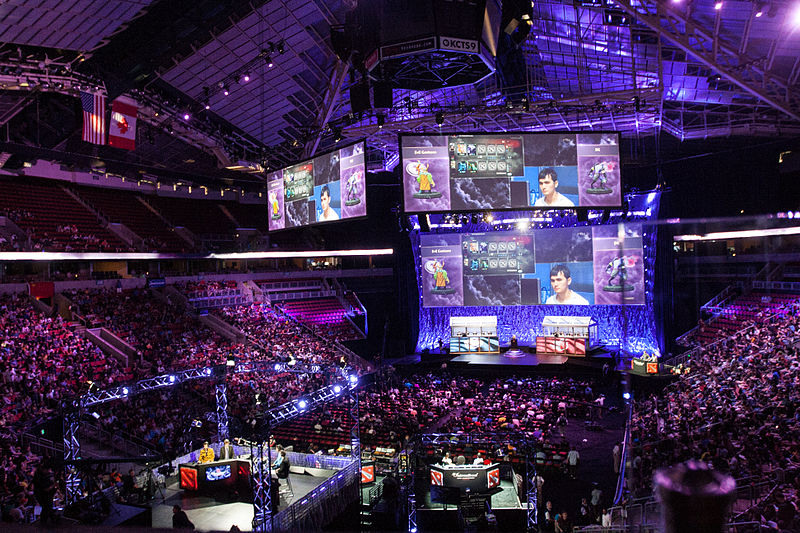Aurangzeb Durrani
More posts from Aurangzeb Durrani
In the world of professional eSports these days, money doesn’t rain — it pours. The stakes are high and the competition can be cut-throat, especially given the payday waiting at the end of a match.
But the flood of money has brought an unexpected innovation in the way players are cashing in (and cashing out) in the vast virtual world of online gaming — match-fixing.
Major Scandals have Rocked eSports
Long an unfortunate fixture in other professional sports like boxing, baseball, basketball, soccer and even golf, the eSports world isn’t immune from the phenomenon. In fact, a case from earlier this year shows just how deeply … and quickly… match-fixing has embedded itself in global competition and how seriously sponsors are treating the problem.
Game developer and competition sponsor Valve announced that 21 Counter-Strike: Global Offensive players who were accused of willingly participating in match-fixing in competitive matches back in early 2015, have been permanently banned from the professional gaming events.
According to Valve, the bans were imposed on seven players after their accounts were investigated following a match between NetcodeGuides and iBUYPOWER. Valve learned that the players exchanged several high-value items among themselves after the match.
However, the motive of match-fixing was not just to trade items among each other. Instead, bets valued at $10,000 were also placed on players and they received around $7,000 worth of skins too.
This incident underscores a major problem with online multiplayer games, which is that they have an in-game economy which allows players to trade off high-value items for real money. It’s created a fertile ground for illegal betting as some players risk their reputation and career to get these high-value items from other players.

DOTA 2, Valve’s second most popular competitive game, has also seen its fair share of scandals. Back in 2013, a Russian player named Aleksey “Solo” Berezin bet against his own team in a major event and won $322. Since then, the number “322” has become synonymous with bad plays and is a common nickname for players who deliberately throw away a game for money.
A similar 322 scandal came into the spotlight back in 2014 after MSI Evolution and Mineski, two popular DOTA 2 teams from Philippines, were accused of match fixing. The matches were played between Team Immunity and Mineski and another between MSI and Mineski. Since these were Star Ladder games, both teams found it more profitable to trade the playoff spot for money.
This may explain why Valve has finally decided to take stern action and dish out harsh punishment on players involved in match-fixing or illegal betting. By bringing down the hammer on the 21 CS:GO players with a permanent ban, Valve intends to set an example to discourage players from engaging in such illicit acts.
ESports analysts have pointed out that Valve’s decision to hand permanent bans may act as a precursor that encourages other game developers to adopt similar measures.
“I think the main issue it raises is that we aren’t in a position to have consistency across games or even across tournaments because we don’t have an over-arching federation or association that agrees the rules and the punishments,” said Paul “ReDeYe” Chaloner, a distinguished name in eSports. “Right now though, I do think the publishers should take a greater role in this and for the most part they are.”
Valve’s decision should ideally have dissuaded all professional eSports athletes around the world from engaging in match-fixing. However, another scandal has rocked the world of eSports this year.
The latest scandal happened in South Korea, where a famous eSports athlete hatched an ingenious plot to increase earnings through match-fixing. The player is none other than Lee “Life” Seung Hyun, a favorite for this year’s season of World Championship Series StarCraft II, and inarguably one of the best StarCraft players in the world.
“Life” was detained by police for several hours and was also questioned by match-fixing investigators for his alleged involvement in illegal betting and match-fixing.
There’s a reason why this scandal is bigger than the ones that shocked the online gaming world last year.
Previously, the players who were implicated in match-fixing scandals were low-tier profiles like Team Prime or waning superstars like Ma “sAviOr” Yoon. “Life”, on the other hand, is a big name in the world of eSports and his involvement should be enough to open the industry’s eyes to the growing problem of match-fixing.

How the World Reacted
So far, online game developers, sponsors, and events’ organizers around the world have expressed solidarity in the global mission to eliminate the match-fixing problem. Many of them have issued public statements warning players of a zero tolerance policy for anyone found involved in such illicit and dishonest activities.
“With an issue as severe and delicate as match fixing, you really need to operate on a case by case basis. In principle, I agree with the lifetime bans that Valve issue, but at the same time if you don’t have a sufficient handle on the specifics then justice is still not always served,” said Richard Wells, Founder and Owner of H2K Gaming. “I feel that Valve has perhaps not quite got this balanced correctly yet but they have certainly created an effective deterrent.”
Wells joins a chorus of people who have voiced concerns regarding the severity of the bans. After all, imagine the outrage if the soccer prodigy, Messi was awarded a ban from major events based on nothing more than allegations. These bans effectively end the careers of eSports athletes.
“Obviously, I commend Valve for taking action against match-fixers to help ensure that we keep the sport clean,” said eSports game analyst, Richard Lewis. “The absence of an infrastructure with a regulatory body puts developers in a weird spot and I think, for the most part, Valve handled this uncharted territory well.”
Not every infraction in eSports deserves a lifetime ban, according to Lewis, but every offense needs to be investigated and punishment should be meted out in accordance with the severity of the crime.
“Context is incredibly important and no two instances of match-fixing will ever be alike. I’m of the opinion that there has to be a road back to redemption in all but the most egregious of abuses,” Lewis said.
In the case of the 21 CS:GO players, Valve’s decision does not mean that the players won’t be able to play tournaments sponsored by different game developers. So technically, it’s not the end of their careers.

Will the Benefits Outweigh the Risks?
Introducing strict regulations certainly seems like the right move to impress upon players the trouble that illegal betting and match-fixing can bring to their newly popular sport and their own careers. A permanent ban from professional gaming and irreparable damage to their reputation should ideally dissuade every player from match-fixing and illegal betting.
And yet, it seems like the specter of match-fixing still looms over the world of eSports, especially because there are many players for whom the rewards of match-fixing outweigh the risks involved.
“We know match-fixing is still taking place in low-stakes games and while it might be out of sight and out of mind at the moment, it’s something we have got to get on top of before it gets out of hand. ” said Lewis. “I know Valve and everyone involved with Counter-Strike wants to get this right and I hope moving forwards we can implement a system that is firm but fair to professionals and viewers alike.”






























Comment